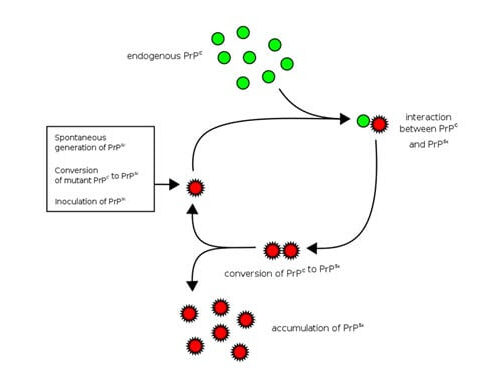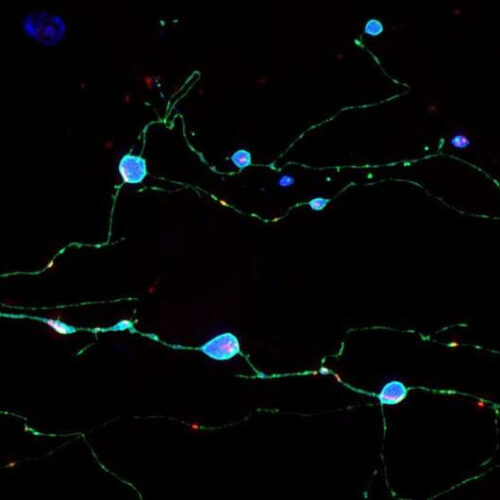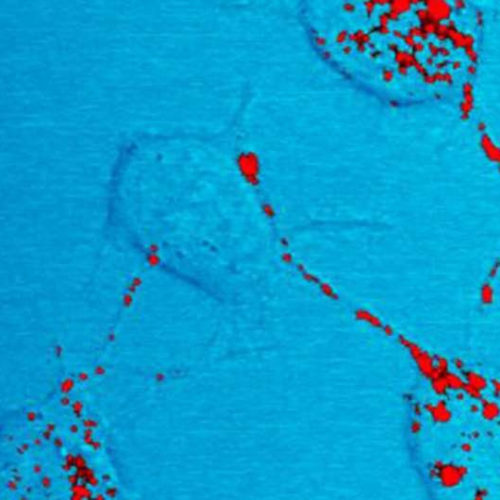F. Perry Wilson, MD, MSCE In 1986, in Britain, cattle started dying. The condition, quickly nicknamed “mad cow disease,” was clearly infectious, but the particular pathogen was difficult to identify. By 1993, 120,000 cattle in Britain were identified as being infected. As yet, no human cases had occurred and the UK government insisted that cattle...
Tag: <span>prion diseases</span>
Discovery illuminates how brain cells die in prion diseases
by The Scripps Research Institute Neurons grown in culture expressing a mutant prion protein (cyan) that cause prion disease in humans. These neurons display swollen axons that contain toxic mutant prion protein aggregates. Chassefeyre et al. identified genes that account for the formation of these aggregates and showed that reducing their function can inhibit aggregate formation...
Prion diseases: New clues in the structure of prion proteins
by International School of Advanced Studies (SISSA) Photomicrograph of a neural tissue specimen, harvested from a scrapie affected mouse, revealing the presence of prion protein stained in red. Credit: National Institute of Allergy and Infectious Diseases(NIAID) Prion diseases are a group of rapidly progressive, fatal and infectious neurodegenerative disorders affecting both humans and animals. Bovine spongiform...
Researchers find new potential treatment for prion diseases
by Oxford University Press A new study in Nucleic Acids Research, published by Oxford University Press, suggests a possible effective treatment strategy for patients suffering from prion disease. Prion disease is a rapidly fatal and currently untreatable neurodegenerative disease. While prion disease is quite rare, it typically causes rapid neurodegeneration. About 300 cases of prion...
Parkinson’s disease and prion diseases: Discovery of a molecular link
For the first time new research has proven the existence of an important interaction between the molecules involved in the two types of pathologies Parkinson’s disease and prion diseases are very different from each other as regards both origins and course. Nonetheless, a research group of SISSA’s, headed by Professor Giuseppe Legname, has discovered an...




